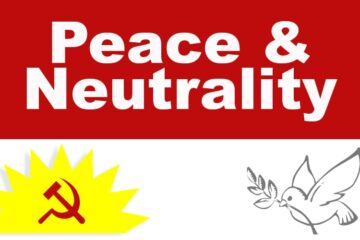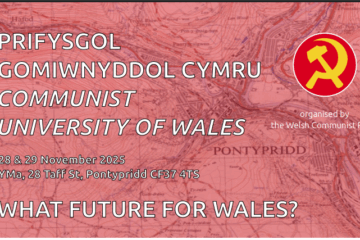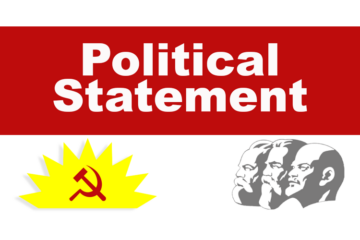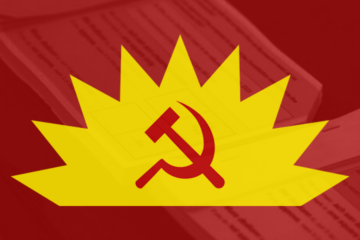Vladimir Ilyich Lenin, born in 1870, died 100 years ago on the 21st of January 1924. Lenin stands as an indomitable figure whose invaluable contributions to communist praxis, of putting theory into practice, remains an enduring cornerstone of revolutionary thought within the workers’ movement internationally. His profound insights, articulated in works like ‘What Is to Be Done?’ and ‘State and Revolution’, illuminated the path toward liberation for the oppressed masses, advocating for the empowerment of the proletariat and the eventual establishment of a classless society.
Lenin’s strategic brilliance in party organisation and tactics is formulated in ‘What is to be Done’, ‘One Step Forward, Two Steps Back’ and ‘“Left-Wing” Communism, An infantile disorder’. In One Step Forward, written in 1904, he develops on his thesis in ‘What is to be Done’ (1902), focusing on the central role of a vanguard party and highlights the importance of a disciplined, centralised party structure to achieve revolutionary goals, even if it means temporary setbacks or tactical retreats. In “Left-Wing” Communism, written in 1920, he tackles the foundations of factions within the communist movement, criticising both ultra-Left adventurism and dogmatic Marxist doctrinaires, instead stressing the importance of adapting tactics to the specific historical context, as opposed to dogmatic adherence to revolutionary slogans. Lenin was a man who argued for a flexible and pragmatic approach, urging communists to engage with the existing institutions and tactics, when necessary, to advance the revolutionary cause.
Furthermore, Lenin’s astute analysis and critique of capitalism cannot be understated. In ‘Imperialism, the highest stage of capitalism’ (1917), he argues that imperialism is characterised by the concentration of capital into monopolies and the fusion of economic and state power, where finance/banking capital plays a dominant role in imperialist economies. His assertion, which is evident everywhere today, is that advanced capitalist nations engage in imperialistic expansion to secure new markets, sources of raw materials, and investment opportunities. The pursuit of these resources leads to the division of the world among major powers and the emergence of post-colonial empires, where instead of gunships landing, its bankers, builders, and big business, contributing to the exploitation and domination of these areas by the imperialist powers.
Lenin’s relentless commitment to proletarian internationalism sparked, and still ignites, solidarity among workers globally, uniting them in a common cause against imperialism and capitalist oppression, which is a testament to his work and analysis. His vision for a socialist state, advocating for the dictatorship of the proletariat as a transitional phase toward a truly communist society, outlined in ‘State and Revolution’ (1917), remains an influential blueprint for revolutionary movements worldwide.
In honouring Lenin’s legacy, we recognise his pivotal role in shaping Marxist theory and praxis, inspiring generations to challenge the capitalist order and strive for a better world, a world where social, economic, and political equality reigns supreme. His tireless dedication to the cause of the working class continues to serve as a guiding beacon for those committed to the struggle for a fairer, more just society and we in the Communist Party of Ireland raise our flag on this day to honour his memory.









